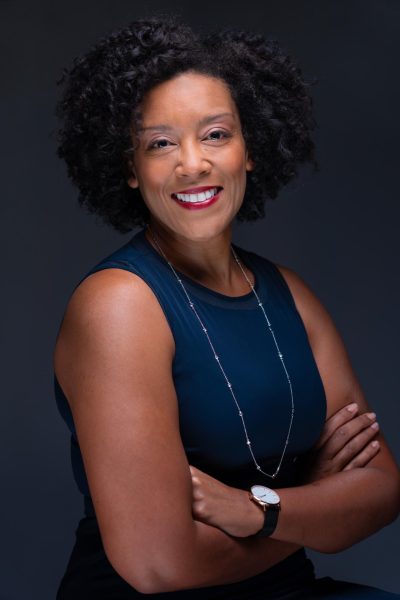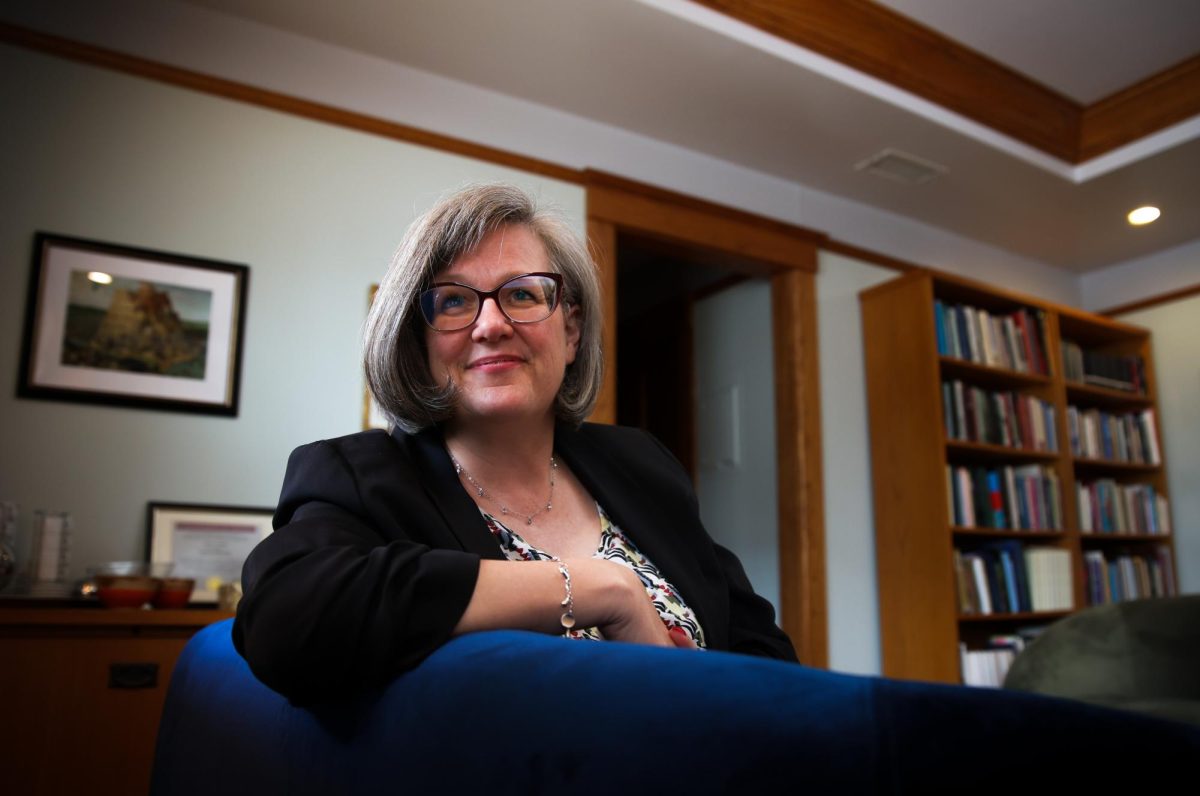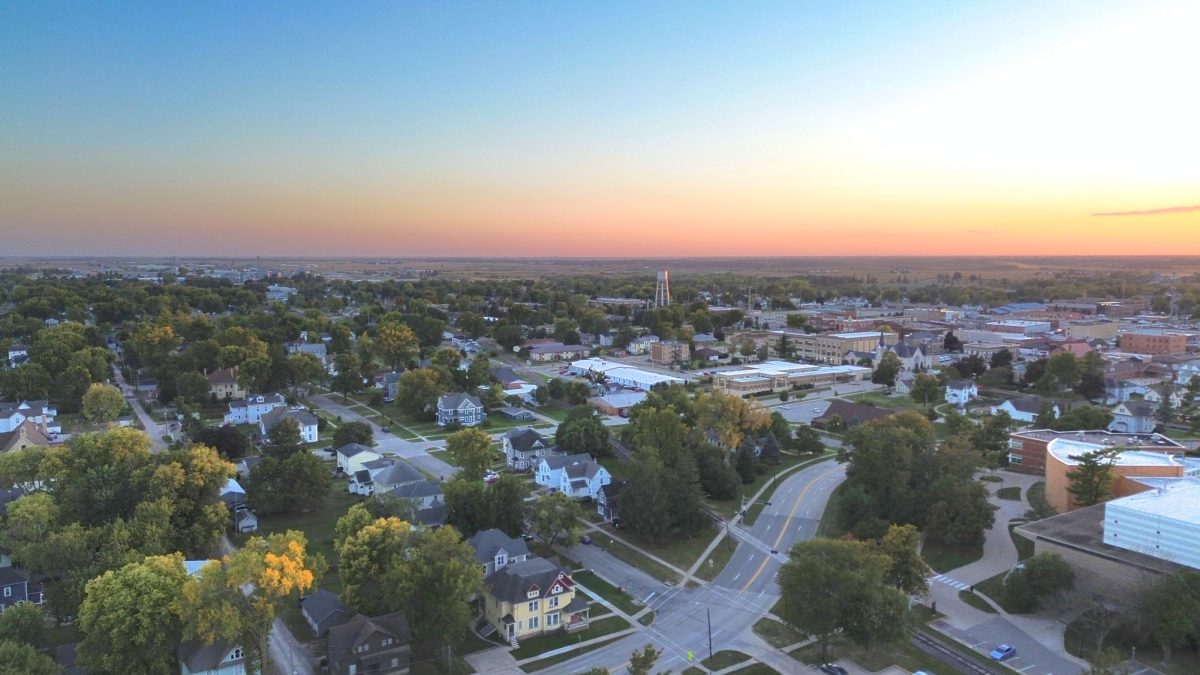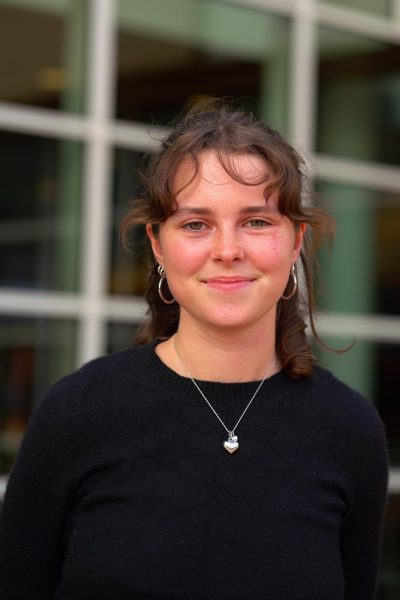
On Tuesday, March 12, Grinnell College announced that Monica Sanders will be the inaugural recipient of the Social Innovator in Residence Program. Sanders, the founder of the Undivide Project, will receive $50,000 in funding for a five to seven week residency in the Edith Renfrow Smith `37 Civic Engagement Quad (CEQ), the construction of which will be complete by the fall 2024 semester. During her residency in the CEQ, Sanders will engage with the Grinnell community, both in and outside of the College.
The Undivide Project is a nonprofit organization that focuses upon the issues of the digital divide and the climate crisis, particularly as these issues pertain to low-income and BIPOC communities. The Undivide Project’s areas of focus thus far include parts of Southeastern Louisiana, Baltimore and Washington, D.C.’s Buzzard Point.
“We set out with our founding of the Undivide Project to work deeply in communities of all kinds to prepare for the dual challenges of digitization and climate change,” said Sanders. “We haven’t had an opportunity to engage with true rural communities. We haven’t had an opportunity to engage with people who are facing some of the hazards and challenges that are happening in the Midwest and, particularly, in Iowa.”
The Social Innovator in Residence Program evolved out of the Grinnell College Innovator for Social Justice Prize, more commonly referred to simply as the Grinnell Prize. Recipients of the Grinnell Prize were awarded $50,000 and expected to visit the campus of the College for several days at a time. To explain the shift from the Grinnell Prize to the Social Innovator in Residence Program, Grinnell College President Anne Harris said, “When I was thinking about where Grinnell is now, where the world is now — when I was thinking about Renfrow Hall — I saw an opportunity for us to move from a prize to a residency.”
Harris said that the transition between the Prize and Residency Program would be mutually beneficial for both students of the College and the Social Innovator in Residence. “More time for students, more support and respite and renewal for social innovators,” she said. “And a greater opportunity to . . . invigorate the civic innovation space with national leadership.”
Vicki Nolton, assistant director for social innovation, partnerships and education, managed the selection process for the Social Innovator in Residence Program, alongside a 14-person committee composed of students, faculty, staff, alumni and the founder of an NGO. In an email to The S&B, Nolton wrote that Sanders was selected because her “timely and important focus on the dual issues of climate change and connectivity are both salient issues for rural communities . . . and an opportunity to learn from one another.”
“The idea that the first Social Innovator in Residence would bring issues that pertain so directly to the lived experience of Grinnellians, Iowans, people of this region . . . that matters to me a great deal,” Harris said. “If you don’t remember the derecho from 2020, you remember the hailstorm from spring of `23 . . . there are more and more of these events.”
Nolton wrote, “Through a range of programming and activities, the social innovator will have the opportunity to continue their primary social innovation work and engage with the community.” She listed “collaborative opportunities such as workshops, lectures, class visits, skill building sessions [and] access [to] campus resources” as potential avenues for Sanders’ engagement with the Grinnell community.
Harris advised students interested in engaging with Sanders to “take the time with her, because five weeks is much more time than three days.” Sanders will visit the College in mid-April to plan her residency, which will begin the following fall.
Sanders encouraged students, faculty, staff and community members interested in working with her to reach out to info@theundivideproject.org or to message any of the Undivide Project’s social media accounts. “Send me your ideas,” she said. “You don’t have to wait until I get to campus.”























































